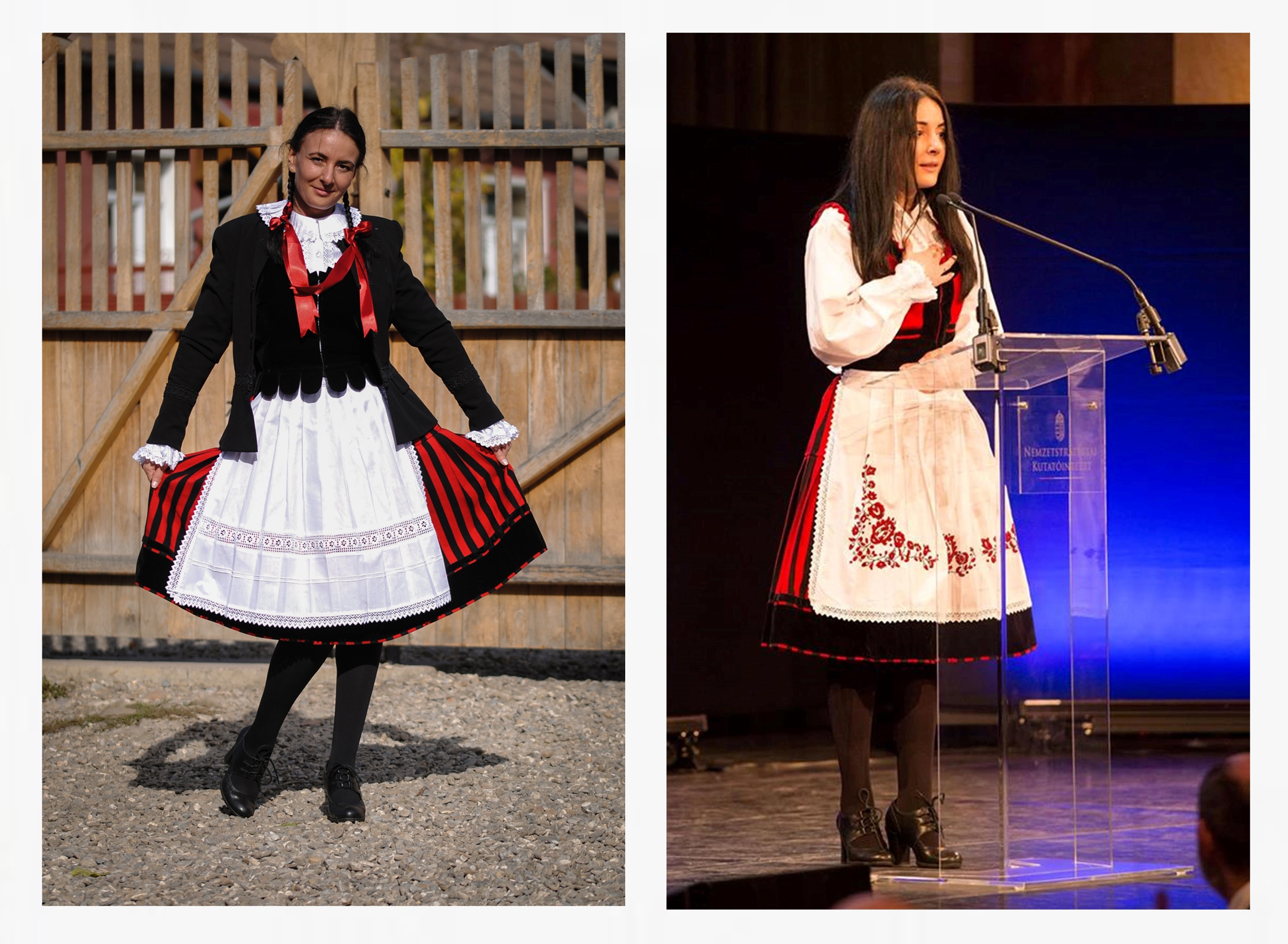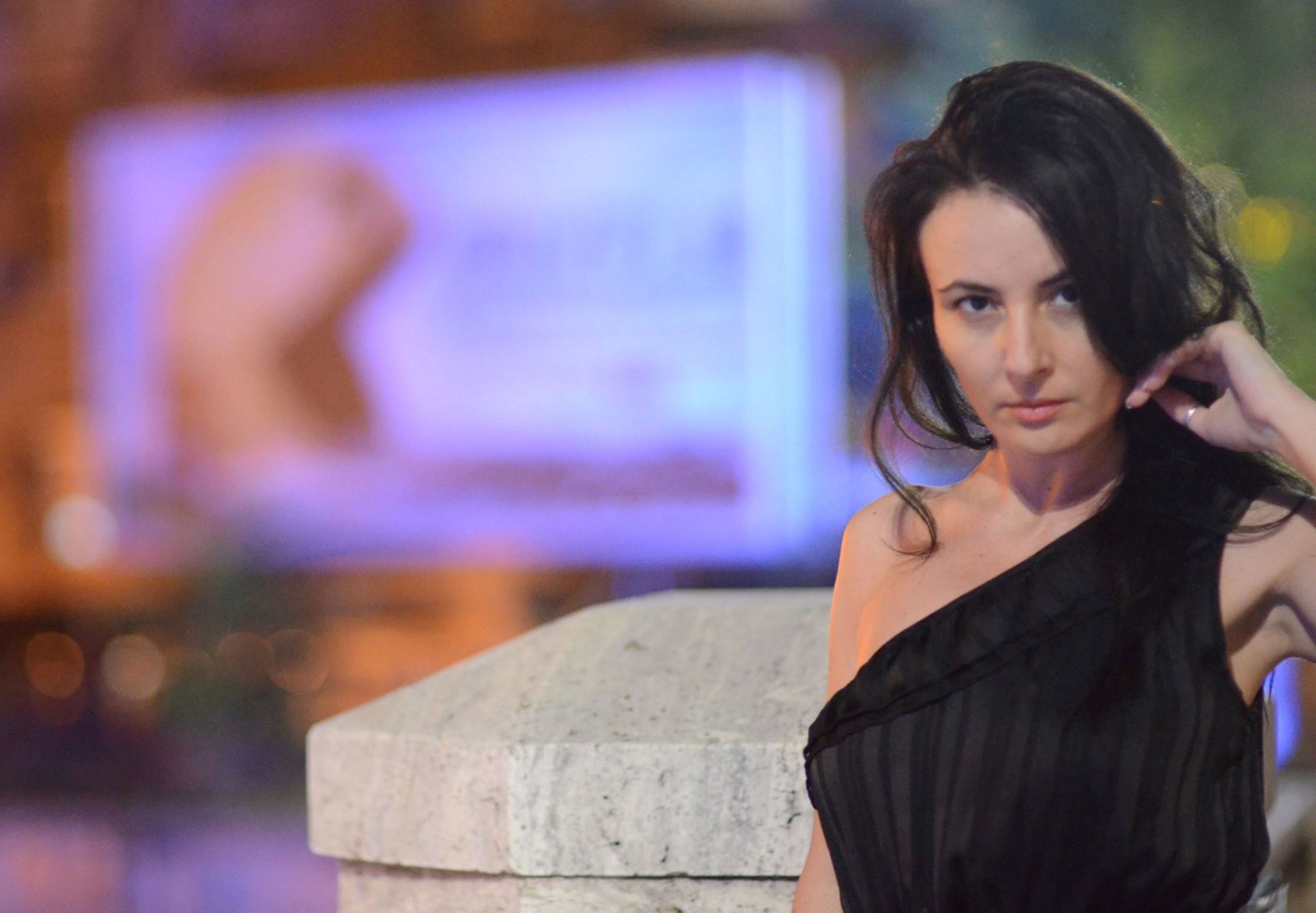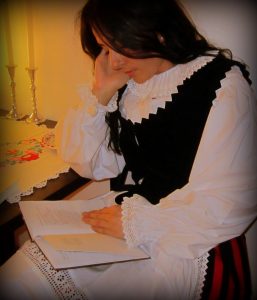TransylvaniaNOW: In one of your Hungarian poems we can read that “My heart is Hungarian / I don’t have any questions inside me”. But you were born in Southern Romania with no Hungarian relatives at all. So where is this identity coming from? And where did you learn Hungarian so good, that you can even write poems in this language?
Roxana Tudor: In May 2015 I had a domestic accident, while living in Bucharest: a bookshelf fell down on me almost breaking my backbone. My spinal cord was damaged and I had to stay in bed for a whole month in terrible pain. During these trying times a certain song was going on and on in my head. It was strengthening my mind and soul and actually saved me. This was a Hungarian song by (pop singer) Jimmy Zámbó, called ”Csak a jók mennek el” (Only the good ones leave) that I accidentally found on the internet a month earlier, while browsing for something else. The song was a strange combination of an interesting voice and some weird sounds in a language I had never heard before. It was touching, mysterious and calming. When I was getting better I started to search for more music from him, and also about the language in which he was singing to me. I always had a passion for foreign languages, even though I never lived abroad. I speak English, French, Italian, Spanish, Portuguese, Hebrew, Bulgarian, Turkish etc., but Hungarian sounds like no other to me. It is exotic and unique both from the grammar and the vocabulary point of view so I started learning it by myself via internet, and music and books. After discovering the language, I also started discovering the culture, the history, the people, the traditions, the cuisine, and the way of life. And I fell into that amazing Hungarian universe so deep, that I began to identify myself with it.

TN: Do you still like his music?
R.T.: Yes, I even visited Jimmy Zámbó’s grave in Budapest this year and I stood there singing his songs for him, with him. I kept feeling the same about his voice and his Hungarian sounds, nothing changed, although meanwhile I discovered different types of Hungarian music. No matter where I hear his music, it still comforts me and heals me.
TN: What was the reaction of your family and friends towards your new interest?
R.T.: At first, they were shocked. No one around me had anything to do with this culture and had no interest in it at all. But they got used to that, as the time went by. Now everyone who knows me also knows about my Hungarian way of life and not only that they accept it, but they are also curious about finding out things from the Hungarian universe. If we are speaking about Romanians in general, at first they didn’t like it either that I turned to the Hungarian world. They took that as a sign of treason. Now they seem to understand that I love good people no matter their nationality and that I am fascinated by the Hungarian culture. The Hungarians/Szeklers are sometimes suspicious about such interests, but most of them embrace me, arms wide open, as being part of the family. We eat together, work, sing, dance, drink, tell stories, laugh and cry together. We learn, help and inspire each other. Many say I do have a mission of bringing the two nations closer. I think they are overestimating me; I am just someone passionate who loves to share her experiences. But if my Romanian–Hungarian joy makes people interested and brings them closer, I could not be any happier.

TN: You even moved to Szeklerlend recently. Have you been here before your accident?
R.T.: No, never but after the accident I came to Csíkszereda (Miercurea Ciuc in Romanian) more and more often, and about 2 years ago I even decided to move here. However it took me a while, as I waited for the right thing to happen, professionally speaking. So I moved here finally in March 2018.While that ” right thing” proved not to be right, I decided to stay.
TN: What happened?
R.T.: I came with lots of dreams. In my mind, the Szeklers had to be all warm and honest people but in my first two months I met Szeklers with no principles and values. I was shocked. I feel I had “the chance” to actually meet the worst of them. At that point I had a discussion with myself: should I stay or should I go? What if I was so wrong about all of them? What if they represent the majority here? Then the answer came straight from my heart: there is no way I am going to leave without finding the real treasure among the Szeklers. And it was a good decision. Now I’m surrounded by other types of Szeklers, the good ones. We take trips to villages, discover legends, architectural styles and peasants’ warmth. I love the old ladies standing in front of the Szekler gates, the children with smart, kind eyes, saying ”Csókolom!” (“Kiss your hand!”), I love the young people dancing folk dances and singing folk songs and the way they still wear their traditional folk costumes so often.

TN: How is your Hungarian knowledge nowadays?
R.T: I’m still not good at speaking it. I’m becoming better at understanding, reading and writing, but speaking comes last, as I don’t practice enough. I’m surrounded by Szeklers, but they are so polite, that we speak in Romanian most of the time.
TN: You also became Honorary Szekler as well. What does it mean?
R.T.: The Research Institute for the National Strategy in Hungary found out about my story, so I was invited to the 5th Székely Ball in Budapest, in February this year where I was given the Honorary Szekler award and I said my first speech in Hungarian in front of 400 people. They considered it moving and for me it was like plunging in my beloved new nation. I am so grateful for that!
TN: Where do you see yourself in a few years?
R.T.: 2018 was such an unpredictable year, that I don’t even dare to make plans anymore although I was kind of a planning lady until now. Anything could happen. I’m sure I would live at the fullest that certain experience, would it be Csíkszereda, Budapest or Bucharest again. Wherever I might live, Csíkszereda and Székelyföld/Szeklerland would stay forever in my heart.
Title image: Roxana Tudor with young Szeklers at the Cabbage Festival in Csíkcsicsó (Ciceu in Romanian)